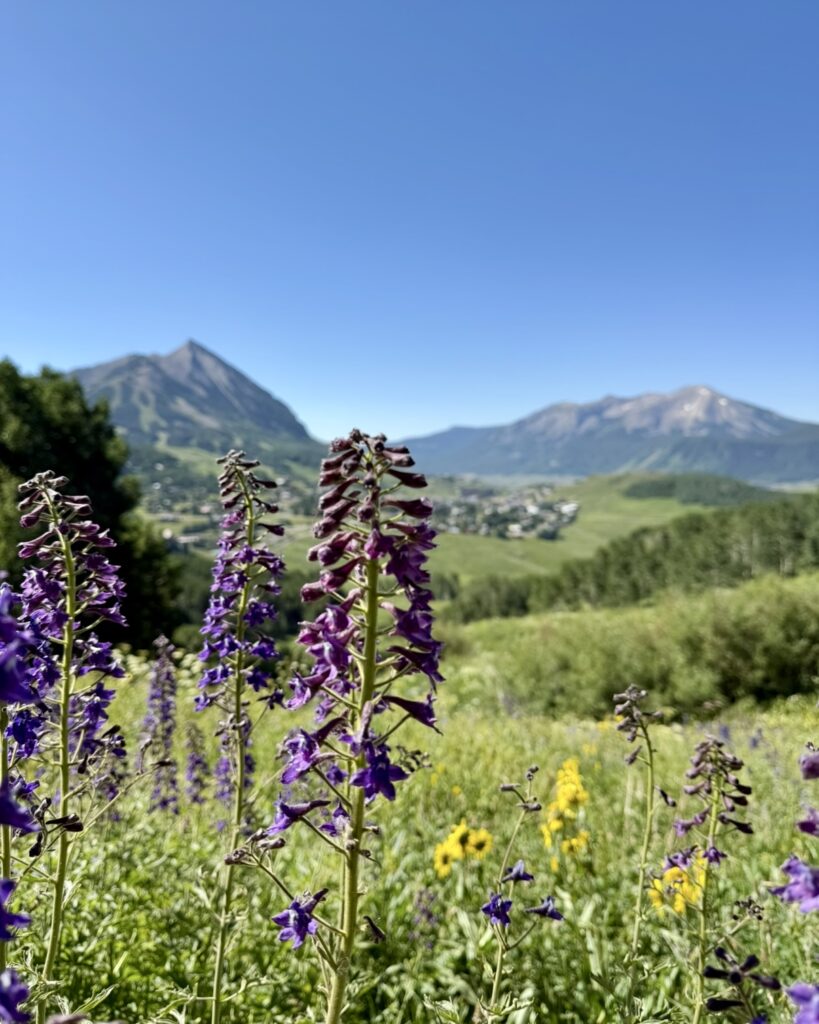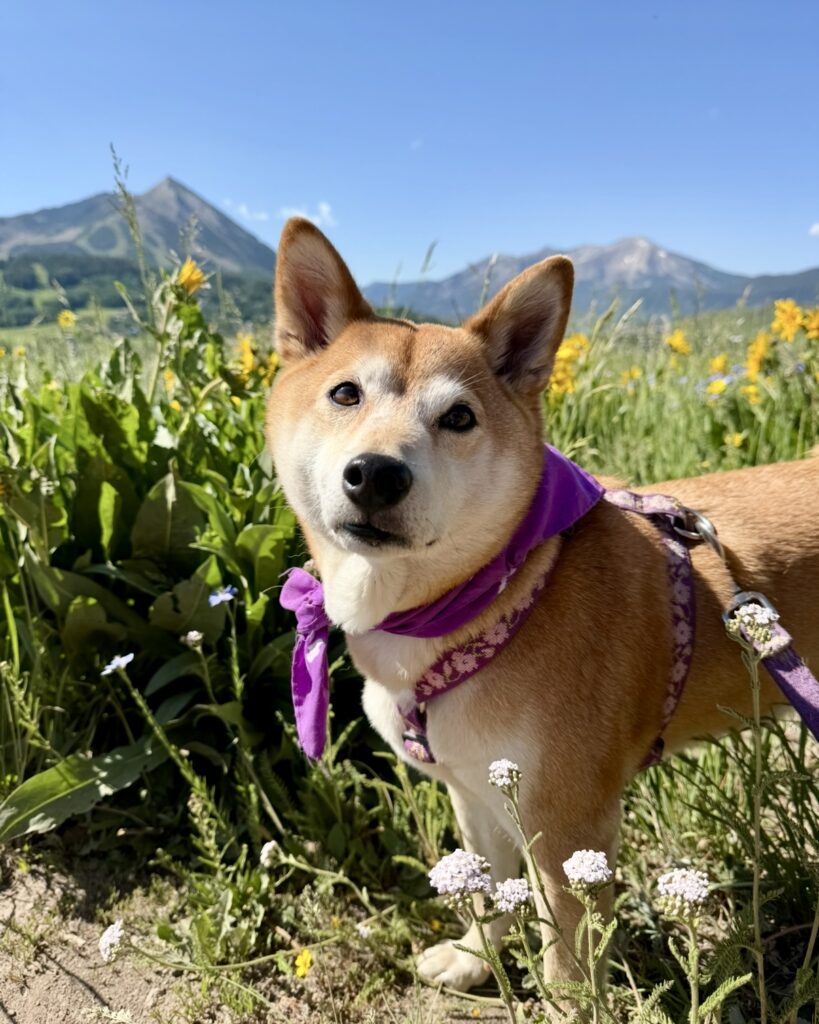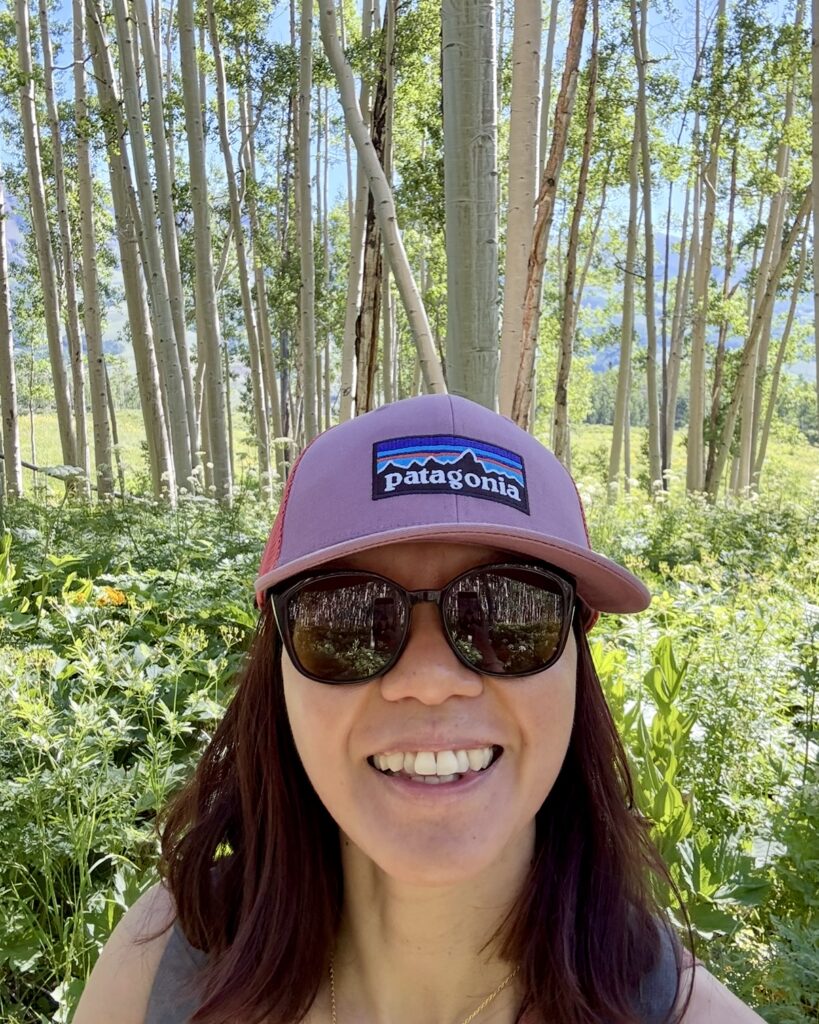If I could find a way… (Do you have Cher stuck in your head now? Do you?)
I spent the last two weeks in Crested Butte, Colorado. It’s a beautiful (butte-iful?) little mountain town about four hours from Denver. Scenic drives and hiking trails featuring alpine lakes, aspen groves, and abundant wildflowers are readily accessible from here, and the town itself is top tier when it comes to good food and solid locally owned businesses.
All that to say, it was so easy for me to pop out and do something awesome at any point of my day. And for the most part, I did just that.

I’m working part-time, and it’s given me a lot of flexibility I’ve never had before. Sure, I have to be online for meetings at certain times, but I try my hardest to structure my days into blocks. For example, if I have meetings at 9:30 and 11:30, I’ll plan to work from, say, 9 to noon. And then I’ll do whatever I want for the rest of the day. In Crested Butte, I sometimes went on a short hike, or drove up to the lake, or walked into art galleries around town. Sometimes, I came back and did some “offline” work for another block of time. But the point is, I feel like I’ve reclaimed ownership of my time.
On paper, I’ve always understood the benefits of owning my time and choosing how I want to spend it. Admittedly, it has felt like a pipe dream. One of those concepts you nod along to in a podcast and then immediately dismiss because your calendar is packed and your inbox is exploding and you’re staring at multiple browser windows, each with 17 tabs open. I understood it intellectually. But in practice, it never quite clicked… until now.
For the first time in my adult working life, I have a schedule with flexibility. Not just flexibility in where I work (remote work has truly changed my life), but flexibility in how I work. I have breathing room between meetings. Time to cook and enjoy lunch at home. Time to play with my dog. Time to read, or write, or even stare off into space and do nothing. Time to take a walk without needing to negotiate it with my never-ending to-do list.
I didn’t realize how tightly I’d been gripping my life until I finally — accidentally? — let go a little.

When you’re working full-time (and let’s be real: for many people, that means working more than the 40 hours that defines “full-time”), it’s hard to separate the structure of your job from the structure of your life. You start living in hour blocks: “I have time for a quick coffee before my 10am standup,” or “maybe after my 4:30.” You can only rest after your inbox is cleared, only go for a walk after your deliverable is shipped. And even then, there’s guilt. There’s always guilt.
I spent years organizing my time around the needs of other people. Meetings, deadlines, availability windows, the dreaded “HOLD” on the calendar. And when you’re good at your job and care about your work, it’s easy to lose sight of how much time you’re giving away. Because being good at your job doesn’t just mean doing what’s asked. It often means anticipating what might be asked, especially in my line of work. Which means you’re never really off. You’re just… “between asks”. Ew. When you put it that way… ew.
This trip reminded me that there’s another way to structure a day, and that it’s not just a vacation thing.
When I was up in the mountains, I worked fewer hours during the week and still got all the important stuff done. And maybe that’s the lesson: when you’re not exhausted or resentful, your work gets more focused. You procrastinate less, you make quicker decisions. And then you close your laptop, mentally detach, and take a hike. Literally.

I think the biggest shift is internal. It’s not just about time management; it’s about mindset. When you feel like you own your time, you approach it differently. You protect it and spend it more intentionally. You are in every minute. There are many reasons for my internal shift, which I will write about eventually, but being forced into having a lot of free time is one of them.
Being busy was all I knew how to do. I think it was a bit of a “boiling frog” situation, but I also think it was proof to myself that I was doing something right, something worthwhile. Saying “I’m slammed this week” became common, and made me feel needed, useful, important. But that kind of validation comes with a price. And when the busyness finally eased up, I realized I don’t miss it at all.
What I did miss was this current version of myself. The version of me who sits outside in the yard, reading a book. Who has ideas in the shower (and not about work!). Who writes more, thinks more clearly, and is just… less tightly wound. I like this version of me.
I’m trying to reprogram my brain and convince myself that I’m not working less because I’m lazy or burnt out. I’m working less because I can. I have agency! I have the ability to make my own decisions! Admittedly, that’s something that’s hard to wrap my head around.
I used to think full-time work was the “default” and everything else was temporary — a stopgap between jobs or a “funemployment” luxury afforded only to people with generational wealth. But what if that’s just not true? What if we’ve all just internalized capitalism so deeply that anything less than 40+ hours a week feels suspect? (I think I have.)
I don’t have a grand conclusion or a dramatic call to action, but I can tell you this: My days feel different now. And not in a flashy, influencer “design your dream life!” way. More in a “I feel more like myself” kind of way.

Maybe that’s the real luxury. Not necessarily a hike among aspens and wildflowers in the middle of the day (though, yes please), but the ability to live at your own pace and to realize that rest and relaxation doesn’t have to be earned, but simply allowed.
Time is still passing, no matter how you fill it. The question is: Do you feel like it’s yours?
Leave a Reply